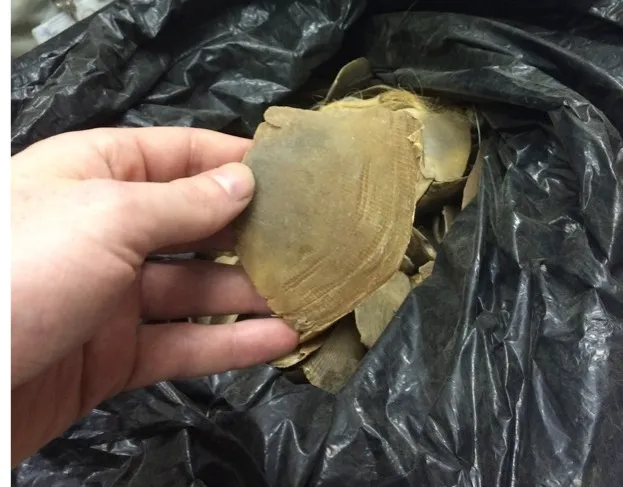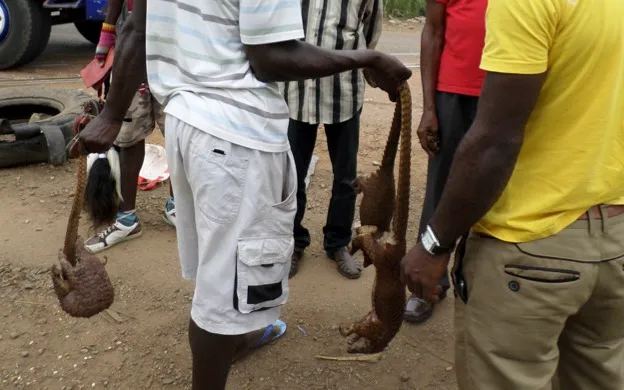Some 80 million years ago, pangolins evolved a perfect defence mechanism against predators – a coat of horny scales made of keratin and the ability to roll up into a tight, impenetrable ball.
It served them perfectly until humans came along. We not only found that it was extremely simple just to pick up a rolled-up pangolin for the pot, but at some point we also decided that those scales must have medicinal value.
Given that the scales are made of the same substance as hair and fingernails, they almost certainly don't.
Today, all eight species – four in Africa and four in Asia – are under varying degrees of pressure because of human activity.
The commercial value of their scales, which are illegally shipped to China and Vietnam, combined with the bushmeat trade, have led to an estimated 1 million pangolins being removed from the wild in the past 10 years.

Pangolin scales are used in Traditional Chinese Medicine in the Far East. © Elliot Newton
In Vietnamese restaurants, diners pay hundreds of pounds to dine on the meat of a single pangolin.
It's no wonder that conservationists describe them as "the most trafficked mammal on the planet".
"That's more individuals than the losses of elephants, tigers and rhinos combined,” Carly Waterman, a pangolin specialist for the Zoological Society of London (ZSL) told BBC Wildlife last year.
Now, a new group wants to help reverse the declining fortunes of pangolins by helping to fund research and conservation work as well as raising awareness about the animals’ plight around the world.
“Perhaps the most significant conservation challenges that pangolins face are the dearth of both ecological knowledge and consumer behaviour research, both of which are fundamental to successful conservation interventions,” said Elliot Newton, a director of People for Pangolins.
In other words, we need to understand pangolins better, and we need to better understand the motives of people who buy their scales in misguided efforts to cure ailments ranging from asthma to psoriasis.
“It is essential that the profile of pangolins in the media is raised such that the illegal trade in these heavily trafficked animals is acknowledged by the global community,” Newton added.

Sadly, these pangolins are destined for the pot – and their scales for the Traditional Chinese Medicine market. © African Pangolin Working Group
Find out more about People for Pangolins
The IUCN Pangolin Specialist Group is the main conservation body for pangolins

